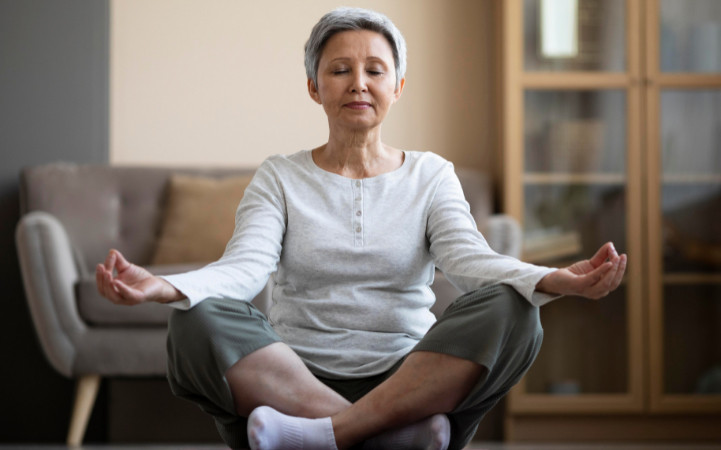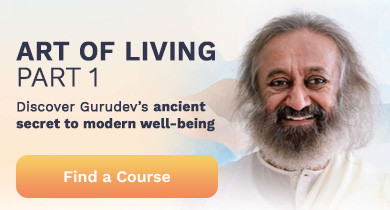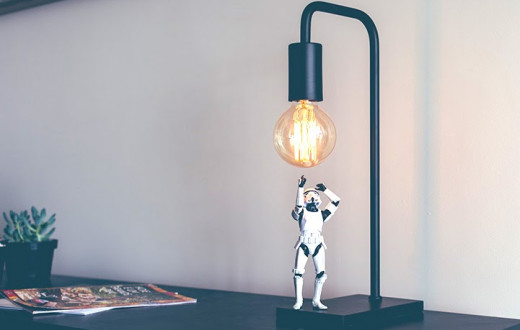
Recently, more and more people have been discovering the benefits of deep breathing exercises. Deep breathing is especially good for working with and managing anxiety. But how do you get started, and why does it work?
In this post, we will be discussing all things related to deep breaths, the benefits, and how you can get started.
What is deep breathing?
Deep breathing goes by many names! Bellows breath and SKY Breath Meditation are two very popular deep breathing techniques. You may also have heard of "belly breathing", "diaphragmatic breathing", or even "abdominal breathing". A rose by any other name, eh?
Breathing in this way is actually very natural. Small children do it without even thinking. As we get older we typically start breathing more shallowly primarily from the middle lobe of the lung.
This shallow breathing results in a breathing pattern that is often faster and can even enhance stress!
Why does breathing matter?
Maybe you're asking yourself that! I know I did when I first started to find out more about breathing techniques and the impact that breathing has on how I feel. I assumed all breaths were created equal, but it turns out this is not the case.
You see, there is a breathing pattern for every emotion. There are so many expressions that include reference to the breath; a sigh of relief, holding your breath when nervous, to feel like a breath of fresh air. We know breath is important!
Shallow, chest breathing—what most of us do!—is associated with more stress. This is how we breathe when we're stressed. Breathing in this way can even make us feel out of breath, which is stressful for the body! Shallow breathing makes it difficult to relax.
Deep breathing and its benefits

There are so many benefits when it comes to deep breathing. If you struggle with anxiety, often feel stressed, or find it hard to switch off then you will benefit from incorporating some form of deep breathing and breath control into your life.
The benefits include:
Improving sleep
Reducing anxiety
Reducing inflammation
Boosting immunity
Increasing energy levels
Reducing high blood pressure
My favorite thing about the benefits of deep breathing is the increased "relaxed energy". For a lot of us having energy is equal to being stressed out, overly active, and caffeinated! While relaxing means slumping, zoning out, and collapsing! But relaxed energy is where it's at! You have energy but you're not stressed. You can take action but without running on adrenaline. It's totally a win-win!
Take a deep breath: How does deep breathing actually work?
AKA "give me the science!".
Breathing techniques have been around for a really long time. They've been part of the Hatha Yoga tradition for hundreds, if not thousands, of years. In recent years breathwork, pranayama, or breath control have gone mainstream in the West.
Multiple studies have found that pranayama can have a positive impact on both your mental and physical health.
How does breathing impact the nervous system?

One of the main ways that deep breathing makes you feel better is due to how it impacts your nervous system. Deep, slow breathing activates your parasympathetic nervous system, while short, shallow breathing activates the sympathetic nervous system.
The parasympathetic nervous system is known as the "rest and digest" branch of the nervous system, while the sympathetic nervous system is the "fight or flight" branch. Which side would you rather have activated?
The sympathetic nervous system is amazing if you're in danger. If there's something bad happening and you need to fight or run now. But ideally, we only engage this part of the nervous system occasionally. It's really hard to live this way!
Living in fight or flight mode is a recipe for stress and burnout. Whether you had something really bad happen and haven't been able to feel calm since, or your life just chronically feels stressful even though there's nothing significantly wrong, deep breathing will help you to find calm and establish a new, more balanced normal.
Simple belly breathing techniques to get started
After all this, I bet you're ready to get started!
One of the simplest ways to practice deep breathing is to breathe into your belly slowly and calmly and to extend your exhale as you breathe out. To put it simply a longer exhale is calming, while a longer inhale is energizing.
Try this at home

You can try breathing in for a count of 4, and out for a count of 6 or 8 depending on what is comfortable for. Let's try this breathing exercise together.
To try this, lie or sit comfortably, and close your eyes. If you like you can place your hand on your belly. Gently, for a count of 4, inhale slowly through your nose "down" into your belly. Your belly should expand, not your chest.
Let your breath rest there for a moment, and when you're ready exhale slowly for a count of 6 (or even 8 if that's comfortable for you). Rest for a moment after the exhale, and then go back to inhaling for a count of 4, and out for a count of 6 or 8. On the inhale you should feel your stomach muscles expand, and contract on the exhale. Breathe deeply in this way for 5 minutes, and see how you feel afterward.
You may also enjoy reading Breathing Exercises 101: Tips and Practices to Start Today.
Become an expert breather

As we've discussed, the breath is an incredibly powerful tool when it comes to relaxation techniques, stress relief, and assisting when you're feeling anxious. If you enjoyed this and would like to go further then you will love SKY Breath Meditation.
Join us for a free introduction
SKY is an amazing technique that has been studied extensively. SKY Breath Meditation has changed the lives of millions of people around the world. From reducing PTSD to boosting immunity, to help you feel more relaxed, SKY has you covered.
You can check SKY out, or join us for a free introductory workshop where an expert teacher will share a breathing technique with you, lead you through a guided meditation, and answer any questions you may have. Click the image below to save your spot.
Take a deep breath, and see you there!




























